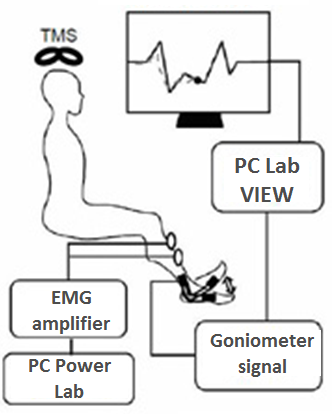Repetitive body movements may form long-lasting motor memory

Researchers in Japan have found that repetitive movements in slow-learning stages can alter an area of the brain responsible for movement, and help individuals retain these motor skills.
Previous studies have shown that learning motor skills reorganizes neural circuits in the primary motor cortex (M1), an area of the brain responsible for movement; studies have also shown that the M1 plays a crucial role in motor memory. However, the following questions have remained unanswered:
When is the M1 reorganized?
Is learning-induced reorganization of the M1 associated with motor memory?
The current study performed two experiments to answer these questions.
Twenty individuals performed ankle movements based on the movement of a cursor displayed on a screen. The researchers instructed the individuals to trace the movement of a simulation appearing on the screen with their foot. They recorded input-output curves of the motor evoked potentials (I-O curves) produced in the tibialis anterior muscle before learning, after the fast-learning stage, and after learning.
The researchers found that the learning could be divided into two stages: fast-learning stage and slow-learning stage. The changes in M1 excitability occurred during the slow-learning stage, and were correlated with motor retention. No changes in M1 excitability were recorded immediately after the fast-learning stage. In addition, the researchers also observed relationships between the length of the slow-learning stage and the changes in M1 excitability as well as between the degree of motor skill retention and learning-induced changes.
"We suggest that changes in M1 excitability reflect formation of strong neural networks that represent optimal motor commands; this phenomenon occurs during the slow-learning stage of motor skill learning because optimal motor commands were repeatedly used during this stage," said Dr. Kozo Funase, Professor of the Graduate School of Integrated Arts and Sciences, Hiroshima University, Japan.
Professor Funase also suggested that the results could be used to help develop teaching materials and educational guidelines for schoolchildren who are not good at exercise, and to develop training programs for individuals who have already mastered an exercise skill.
More information: Masato Hirano et al. Interactions Among Learning Stage, Retention, and Primary Motor Cortex Excitability in Motor Skill Learning, Brain Stimulation (2015). DOI: 10.1016/j.brs.2015.07.025


















